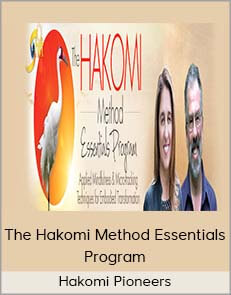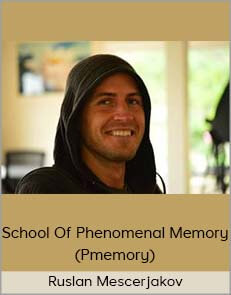Andrew Austin – The Pragmatics of Change
$35.00$120.00 (-71%)
Some archetypal themes pertaining to persistent anger are explored in this session, such as the use of violent fantasy, mechanisms of suppression and control and feeling as though one is potentially like an exploding volcano.
SalePage
Andrew Austin – The Pragmatics of Change

Check it out: Andrew Austin – The Pragmatics of Change
Not all people with depression look particularly depressed. Many people struggle through feeling bad on the inside whilst maintaining a mask of smiling and being jolly on the outside. Their pain is often a secret pain without witnesses. In this session, Andrew T. Austin demonstrates a content free method of working with a client with a history of depressive illness. Without overtly exploring the client’s story and personal history, Austin uses the core algorithms that lay at the heart of integral eye movement therapy to begin a profound process of change and self exploration. Whilst seemingly doing little more than the eye movement exercises, the client is led through a structured interview, beginning first with a simple recollection of a minor but troublesome memory before moving rapidly into the deep underlying emotional states that drive the depression.
Incorporated into this interview, Austin introduces the client to two key elements of what he terms, “The Patterns of Chronicity” which better enables the client to follow the change work without inadvertently “blocking” the work. In his characteristic and unconventional style, Austin delivers much of the change work before asking the client what the problem is. It is at this point in the interview that he changes direction to begin exploring aspects of identity and personal growth. In exploring identity, Austin hits upon a number of archetypal themes including people pleasing, masks, aging, difficult relationships and self esteem. One week after the interview, the client wrote, “After filming, I had rather a leisurely afternoon and was quite agitated, but not depressed. The following day I felt very agitated, I was expecting to feel depressed but didn’t – I felt slightly confused and was a bit clumsy. Today, I feel good, not depressed or expecting to feel depressed. I have good mental clarity and for the first time in a very long time, my head is not filled with foggy meaningless crap!!”
The Angry Insomniac: Suppressed Anger Dealing with Very Strong Negative Emotions
This is a second session with a client who returned for further work. The first session was for insomnia and was not filmed. Whilst the client reports that the insomnia was not improved by this first session, he reports that other areas of his life have undergone a “massive change.” These changes are discussed at the beginning of this session. Following a humorous and provocative approach inspired by the work of Frank Farrelly and Nick Kemp, Andrew T. Austin playfully opens the change work by conversationally and subtly probing for the client representations and strategies. Advanced practitioners will notice the conversational use of state fractionation as well as the chaining of states in the first half of the session. “The interruptions and tangential questions are not random,” Austin cryptically offers by way of explanation, “this approach works really well and in this case [client] was delightful to work with and noticeably very responsive to the work.”
Some archetypal themes pertaining to persistent anger are explored in this session, such as the use of violent fantasy, mechanisms of suppression and control and feeling as though one is potentially like an exploding volcano. At times confrontational but never once losing rapport, Austin demonstrates how the metaphors of Movement process, strategy reframing, submodality changes, kinaesthetic dissociation and future pacing can all be achieved quite conversationally and without incurring any conscious resistance by the client.
Possibly this conversational style is too covert, as at the end of the session, contrasting to the level of intensity of the feeling of anger earlier in the session the client remarks, “How did you do that?! That is quite amazing really. I cannot even imagine myself getting into a state, it’s bizarre!”
Multitude of Problems: Tinnitus, Depression and Physical Illness – Feeling Very Low
In this session, the client presents a complex set of problems principally revolving around tinnitus (ringing in the ears), depression, a serious blood disorder and problems with excessive alcohol intake.
With limited time, Andrew T. Austin chooses first to work with the depression aspect, followed by the excessive alcohol before exploring the tinnitus experience. Early in the session, the client demonstrates clearly “being at effect” – i.e. in tune with the effect that these problems have upon his life and his day to day experience – but he struggles with finding “cause.” Like so many people who have suffered chronic problems, his experience reflects that problems just happen to him and that the solutions are outside of conscious control.
Ignoring the tangential thinking that the client presents, Austin persistently sticks with the structured interview, a structure of which the client is clearly unaware. Austin guides the client inward to eventually enable him to begin to examine his own personal mental strategies. This stage is not reached before the client clearly begins to feel quite uncomfortable and challenged by the nature of the session. As Austin teaches his students, “sometimes you just need to be comfortable yourself with other people’s discomfort.”Viewers will note the unusual way in which the session ends – it just stops and the client is dismissed quickly despite the worsening of a particular symptom.
Austin claims that in this instance this is a vital therapeutic maneuver and not just a function of the necessity of time constraints. He says he will leave it to the viewer to workout the exact reason for this.
The Distressed Late Guy: Dealing With Extreme Emotional Distress when really bad stuff happens to really good people
Filmed in its entirety, this is one of the sessions that Andrew T. Austin regards as one of the best demonstrations of his work from 2009. The client in this session has struggled for a long time with serious feelings of depression. Advanced practitioners would do well to study the language patterns used in this unusual client session. This is very much “secret work”, as the content and story of the client’s problems remain undisclosed throughout the session.
Disregarding the negative effects of these problems upon his life, Austin quickly engages the client at the level of his personal strategies using his metaphors of Movement approach to reframing. Working with both the psychological representations and the manner by which the client moves and positions his muscles, Austin’s unorthodox approach moves the client’s awareness away from the effect of how bad he feels and chunks up towards addressing the strategies by which the client addresses life’s challenges. Areas addressed or demonstrated in this DVD include metaphors of movement, advanced reframing, strategies, timeline organization, future planning/future pacing and translating strategic thinking into physical actions. Having arrived distressed and very late owing to a long car journey and heavy traffic, the client’s level of stress is very noticeable at the beginning of the session. Towards the end of the session the level of change is very noticeable.
Following the session, the client wrote, “Many thanks for seeing me, despite my lateness! I really do believe that the long journey I made was worth every mile. The session with you seems to have changed my attitude and disposition already. Positive things are already happening to me. Shit, this is weird! A big thank you again.”
Andrew T. Austin is a former nurse and has a specialist interest in neurology and the neurosciences. He Author of the critically acclaimed book, “The Rainbow Machine – Tales From a Neurolinguist’s Journal” and known for his creative exploration of his clients problems and innovative solutions.














